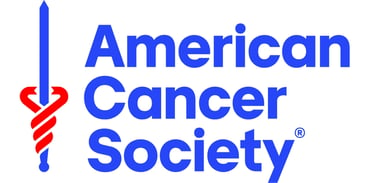Another Losing Battle
Cancer disparities among women of color, namely Puerto Rican Women.
HBIC
10/9/2024
Cancer is a struggle against the unknown. Whenever a new illness pops up, doctors immediately label it as a "cancer". AIDS, for instance, was first diagnosed as a cancer and now folks have learned how to manage living with the illness.
Yet, for many Puerto Rican women, this battle is compounded by systemic inequalities, historical trauma, and healthcare disparities that render it significantly harder to win. Our statistical reality reveals a grim result: Puerto Rican women suffer higher-than-average cancer mortality rates, particularly in the cases of cervical and endometrial cancer. This a heartbreaking narrative and I hate to have to tell it.. .
Cervical and Endometrial Cancer: The Reality
Puerto Rican women have the highest cervical cancer mortality rate among Hispanic women, an alarming statistic that demands our immediate attention. Cervical cancer, often preventable through regular screenings and vaccinations, should not result in such dire outcomes—yet here we stand, confronting the reality that these services may be inequitably distributed or wholly inaccessible for many. Now WHY IS THAT SO?!
Studies have drawn correlations between delayed diagnoses and negative outcomes, but what is more striking is how these statistics reflect broader societal issues, including poverty, limited access to healthcare, and cultural stigma related to reproductive health. Really now?
So, With all these proven scientific studies, statistics and demographics, the United States government continues to neglect the island and its residents. WHY?
What. The. Fuck!
Similarly, Puerto Rico boasts the highest incidence rates of endometrial cancer compared to any other racial or ethnic group. Women in Puerto Rico are confronting an insidious disease that often goes under-recognized in mainland discussions about women's health. Why? Because the discourse rarely accounts for the unique experiences and challenges faced by these women. It seems like the medical community has largely failed to engage with them in ways that promote understanding and proactive health measures.
The Pain of Loss: Age-Adjusted Potential Years of Life Lost
In addition to these alarming rates, Puerto Rican women also experience a staggering age-adjusted potential years of life lost (PYLL) rate—the second highest among female Hispanics, trailing only behind Mexican women. This statistic encapsulates not just the loss of life, but the deep, profound impact these losses have on families and communities. Each year represents missed milestones, unfulfilled dreams, and relationships severed too soon.
Having lost a loved one to cancer myself, I can attest to the overwhelming despair and frustration felt when navigating the labyrinthine world of oncology. As I accompanied my loved one through countless appointments, tests, and treatments, I gained a disturbing insight: it seemed the doctors were operating in the dark. Their knowledge felt superficial, as if they were reading from a script rather than engaging in a genuine sense of care and exploration. Every diagnosis felt like a game of chance, each treatment plan was a shot in the dark, and the alternative outcomes often pushed aside as collateral damage in an ongoing health crisis.
Colorectal and Breast Cancer: The Larger Picture
The cancer crisis within Puerto Rican communities extends beyond cervical and endometrial cancers. Colorectal cancer stands as the leading cause of cancer death among Hispanic men and women in Puerto Rico. Meanwhile, the age-adjusted incidence rate for female breast cancer from 2017–2021 was a like 99.0 per 100,000 people. This multifaceted landscape demands more than fragmented discussions around individual cancers; it calls for a comprehensive approach to women’s health that includes prevention, education, and culturally competent care.
The harsh reality is even further complicated for Puerto Rican men living in Florida, where they face the highest liver cancer mortality rates of any Hispanic group. This pattern exemplifies the geographical and socioeconomic boundaries that often dictate health outcomes. Yet perhaps even more disturbing is the increasing size of the US-born Hispanic population whose cancer risk continues to rise—one we cannot ignore if we seek lasting solutions.
A Legacy of Exploitation
Underlying these alarming statistics is a history of exploitation that has made Puerto Ricans all too familiar with being on the receiving end of experimental procedures at the hands of the United States. This historical trauma complicates the relationship between Puerto Ricans and the healthcare system. The narrative that Puerto Rican DNA is being “designed to be eradicated” pulses through the minds of many with a painful legacy that fuels mistrust and skepticism towards medical entities.
This perception is more than just paranoia; it is rooted in a history of disfavor where studies and medical advancements often prioritize the needs of the mainland over the island’s specific vulnerabilities. Consequently, the urgency for targeted research, healthcare funding, and equitable access to treatment has never been clearer.
A Call to Action
The tragic reality is that Puerto Rican women—along with their communities—are fighting a war on multiple fronts: against cancer, against systemic inequities, and against the historical scars left by colonial exploitation. As individuals, communities, and advocates for change, we must bring awareness to these issues. It is our responsibility to ensure that the voices of Puerto Rican women echo throughout the halls of healthcare policy, that their pain is acknowledged, and that their needs are met with urgency and compassion.
To those in power: it is time to act. To the medical community: it is time to listen and learn from the lived experiences of your patients, especially marginalized populations. And to the rest of us: it is time to raise our voices, challenge the status quo, and demand change.
We owe it to our sistren being weakened by this vastness of incurable diseases. And to those who continue to endure, and those to come after us. Each statistic tells a story, guys. It's high time we start listening.


Get In Touch:
adm@boujeeburke.com
grievances: hbic@boujeeburke.com


Please feel free to reach out for inquiries, feedback, or partnership opportunities. Boujee Burke is open to suggestions,
& mutually beneficial partnerships.


Boujee Burke Recap Bulletin





